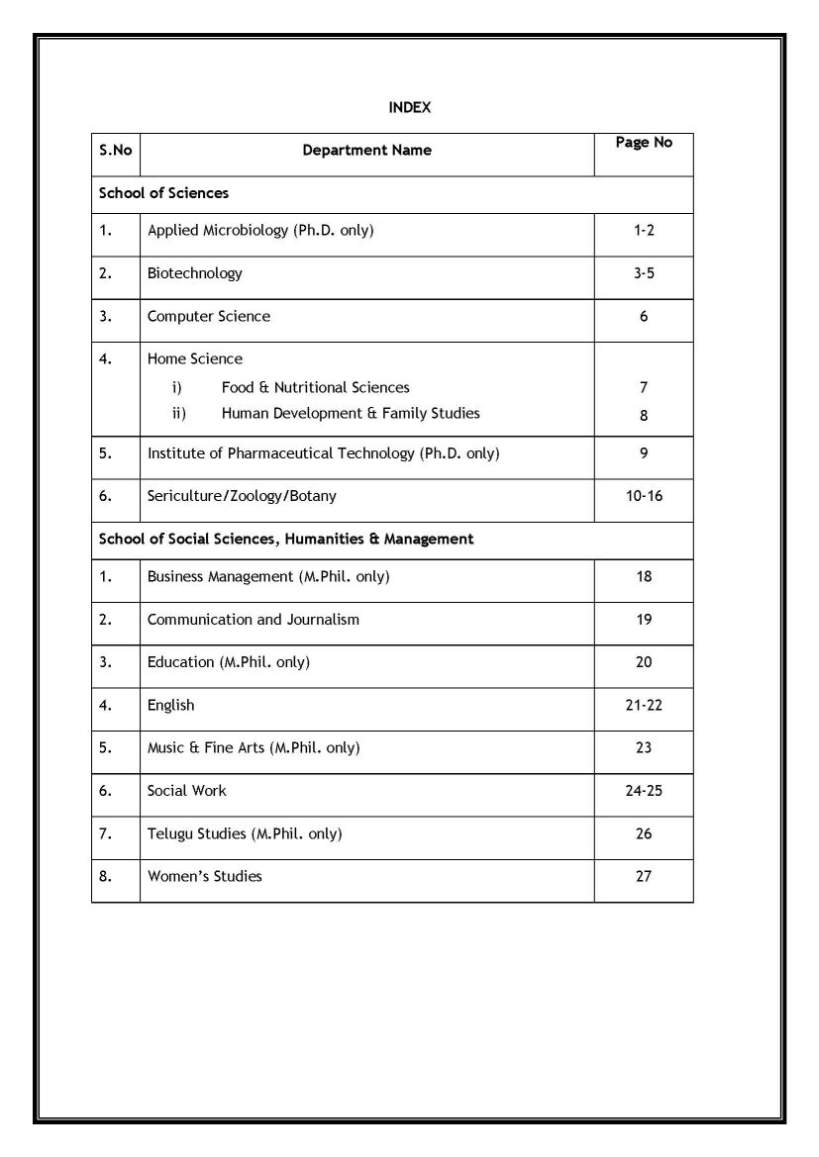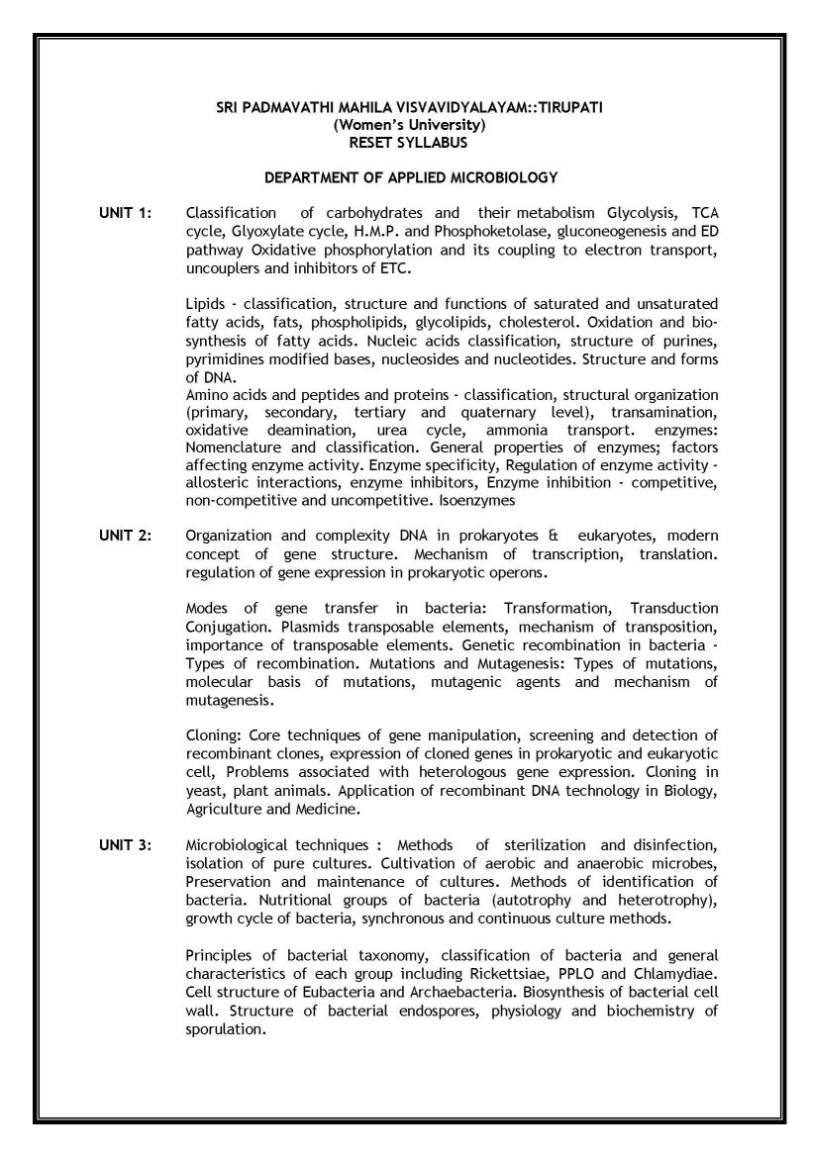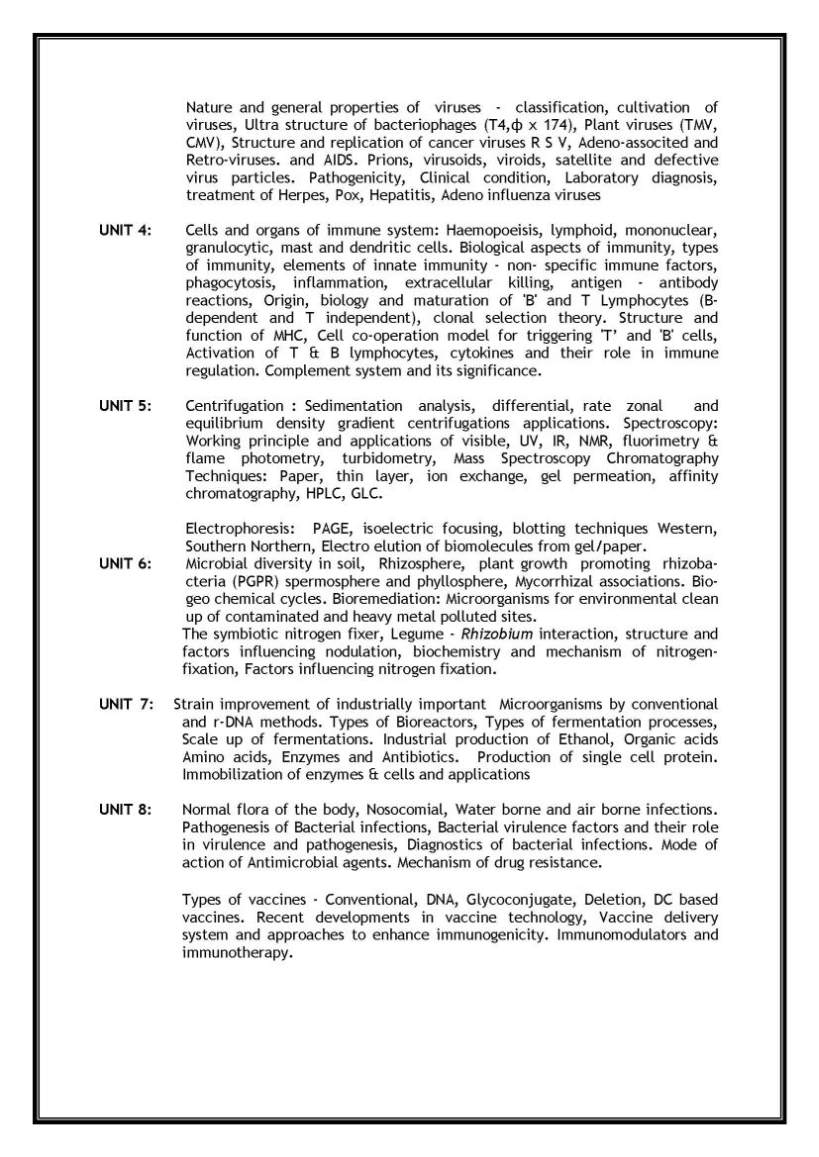|
#2
9th July 2015, 03:21 PM
| |||
| |||
| Re: Spmvv reset
As you want I am here giving you Syllabus for Research Entrance Test (RESET) for course of Department Of Biotechnology of Sri Padmavati Mahila Visvavidyalayam (SPMVV). Syllabus: UNIT 1: Cell theory - Structure of prokaryotic and eukaryotic cell. Plasma membrane, cell wall of animal and plant cells - their composition and structural organization. Structure and functions of cellular organelles - Endoplasmic reticulum, Golgi apparatus, Lysosome - intracellular protein trafficking, receptor mediated endocytosis. Golgi sorting. Prokaryotic & Eukaryotic Chromosomal organization, Nucleus, structure of nuclear membrane, structure of nucleosome, chromatin, Mitochondrial and chloroplast DNA. Cell cycle - General strategy of cell cycle, components in cell cycle control - cyclin, CDK's, regulation and control of cell cycle -Inhibitors. Cell death -apoptosis and necrosis - mechanism ofextrinsic and intrinsic apoptotic pathways. UNIT 2: Microbiological techniques : Methods of sterilization, isolation of pure cultures, cultivation of aerobic and anaerobic organisms, enumeration and measurement of growth, staining techniques, Methods of identification of bacteria, preservation and maintenance of cultures. Microbial growth and mathematical expression and growth curve. Batch and Continuous cultures. Factors influencing growth (Physical and Chemical). Modes of nutrition in microorganism. UNIT 3: Origin of Biomolecules, Hydrogen bond, Vanderwaal forces, Ionic bond, Covalent bond and coordinate covalent bonds; Principles of thermodynamics. Classification, Structure and biological significance of carbohydrates, Proteins and Lipids. Classification of enzymes, hormones, vitamins and plant regulators. Chemistry of Nucleic acids - Classification & structure. UNIT 4: Mechanism of enzyme action : Kinetics of enzyme catalyzed reactions (pH, temperature, incubation period, substrate and enzyme concentrations), assay of enzyme activities, activators and inhibitors, zymogen activation, isoenzymes, allosteric enzymes, regulation of enzyme activity, ribozymes and abzymes. Metabolism of carbohydrates Glycolysis, TCA cycle, glyoxalate cycle, gluconeogenesis, HMP shunt, interconversion of hexoses and pentoss, amylogenesis, glycogenesis, synthesis of cellulose and hemicellulose. Metabolism of amino acids and proteins - Hydrolysis of proteins, proteases, synthesis of amino acids and their catabolism (deamination, decarboxylation, and transamination) coordinated control of metabolism, formation of ammonia and urea. Nitrogen fixation by bacteria, inborn errors in metabolism. UNIT 5: Immunity - natural and acquired; specific and non -specific; local and general. Primary and Secondary organ of immune system - thymus, spleen, lymph nodes, bursa fabricus, other types of lymphoid tissue. Cells of the immune system; B and T lymphocytes, eutrophils, macrophages, plasma cells, eosinophils and basophils. Natural body defense. Antigen - definition, properties, specificity, cross reactivity, immunogenicity, antigenic determinants and haptens. Antibody: nature and formation, classification of immunoglobulings, types, diversity and production of antibody - primary and secondary responses, valency and avidity production of polyclonal antibodies: Monoclonal antibodies - principles, production, advantages and disadvantages over polyclonal antibodies. Mechanism of antigen -antibody interaction. Production of vaccines and sera conventional and biotechnological. For more detail here is the attachment. Syllabus for Research Entrance Test (RESET) for course of Department Of Biotechnology    |